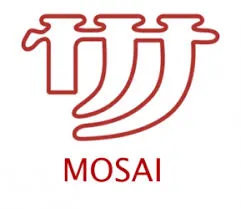Choosing the best institute for learning Japanese is a life-changing decision. A right Japanese language course can lead to overseas career opportunities, increased cultural understanding, and the ability to communicate in one of the world’s most crucial languages. Two names that stand at the top are MOSAI and Kazumi Japanese & Culture School by Henry Harvin in India. These institutions are the Japanese language institute that offers a high teaching standard. However has its strengths and differences in academic philosophy. When delivering Japanese Language Courses.
This blog is your in-depth guide on a comparison between the MOSAI vs Kazumi Japanese & Culture School by Henry Harvin. It is based on course quality, Japanese Language Course structure, course content, faculty, culture immersion, accreditations & student success stories. So whether you are a complete novice who wants to say “こんにちは (Konnichiwa)” for the first time, a working professional wanting business Japanese fluency, or a language nerd who loves Japanese culture and wants to challenge themselves with a new language, I will help you locate which institute will give you what and the best chance you have at reaching your goals! Japanese is a great language to add to your resume; it has tons of cultural values, boosts brain power, and opens up much of the world to you.
Benefits of Learning the Japanese Language
Key Benefits include:
- Business and Career Development: Japanese is in demand in international economic industries such as technology and animation, engineering, tourism, and hospitality. Hence, Japanese-speaking employees in Indian and multi-national companies are in demand; there is a need for Japanese speakers, there are translators, interpreters, teachers, and even business professionals.
- Business Prospects: It helps professionals grow organizations, fostering memorandums with Japanese organizations, and negotiating much better in the international marketplace.
- Market Value: There are not as many people who master Japanese as other major languages, so you will democratize the job market and salary value for workers.
- Study and Work in Japan: Learning the language grants you access to higher education and job markets, as Japan is also facing a shortage of workers in many industries. For example, there are programs such as JET that enable you to teach English in Japan, with the added benefit of speaking Japanese, which makes landing a job a lot easier in the realms of IT, engineering, and aviation.
- Cultural Exposure: Students can dive into Japanese culture through anime, manga, food, literature, and festivals, often in the native language and in subtle aspects of culture.
- Development of the self: Studies reveal that a foreign language is good for memory, helps in multimodal skills, and improves problem-solving skills. Japanese is not an easy language to master, and if you can overcome that challenge, then you gain confidence and resilience.
- An open door to Traveling and Networking: Traveling in Japan comes to life, and Japanese speakers will help communicate and respect cultures.
Besides, learning Japanese will add a bonus to your resume and make your life more colorful and diversified through new insights, opportunities, and accomplishments.
Comparison of Japanese Language Courses by MOSAI and Kazumi Japanese & Culture School by Henry Harvin
1. Background and Affiliations
MOSAI Institute:

Mombusho Scholars Association of India (MOSAI) is a non-profit organisation that works in the field of promotion of higher studies in Japan and the Japanese language, Indo-Japanese academic, educational, and cultural ties. Through lectures, seminars, research, and publications, it aims to promote better understanding and cooperation between India and Japan. Has close links with the Embassy of Japan in India, Japan Foundation, other Indo-Japanese institutions and organisations. It also offers the JLPT and promotes events such as speech contests.
Kazumi Japanese & Culture School By Henry Harvin

Henry Harvin Education is a global EdTech company and one of the oldest entrants in the EdTech space, established in 2013. It provides more than 1,200 certification courses in 37+ categories, ranging from languages to competency development, to make people employable. The company has trained 4,60,000+ people and caters to 900+ corporate clients and 210+ colleges worldwide and has a presence in 13+ cities in the USA, UK, UAE and India. With the mission to innovate new products, processes, people, and markets to the highest possible customer values. Henry Harvin offers Japanese Language courses in India and worldwide via their Kazumi Japanese & Culture School.
Affiliations of Henry Harvin— ISO 29990:2010 Certification, CompTIA Partnership, PMI Partnership, IASSC Partnership, ACCA Partnership, AAPC Partnership, City University Partners, AAEFL Partner, KPMG & EY Partners, Brian Tracy, VIVO, and more. It is associated with more than 180 colleges (including 19+ IIMs and 14+ IITs) as well as corporate clients, including Koch, NTPC, Abbott, Lufthansa, IBM, GAP, NIIT, HDFC Bank, and Wipro.
It goes with the JF standard within Japanese language courses, and moreover, it provides preparation for the JLPT, NAT, and JFT exams.
Takeaway: Kazumi Japanese & Culture School by Henry Harvin has a modern global EdTech background and extensive network with institutions and corporates, and their target segment is wider, making them better for career-oriented citizens in 2025, while MOSAI is a niche, non-profit based organisation with Indo-Japanese cultural ties.
2. Levels and Curriculum of Japanese Language Courses
MOSAI Institute:
The Japanese Language Training Courses are in accordance with the JLPT ranks — basic Japanese (which includes the basics of N5/N4 and covers hiragana, katakana, some simple kanji, basic grammar, and conversation) over 222 hours. Higher levels reach up to N2/N3 with focus on structured JP level preparatio,n including EJU exam prep. The curriculum is conventional, keeping closely to academic ties with Japan, but it is often referred to as “schoolish” with a rather stiff pace.
Kazumi Japanese & Culture School:
5 levels (N5 — N1) according to the levels of the Japanese-Language Proficiency Test (JLPT), and a total of 670 hours in modules. Basics covering scripts, greetings, and ethics are tested at N5; grammar, vocabulary, kanji, and reading, building on this at the higher levels, characterised by cultural insights, including business Japanese. With all this, it has JP/NAT/JFT preparation with mock tests, sample papers,and a practical project like 67+ capstone assignments.
Takeaway: Kazumi Japanese & Culture School by Henry Harvin has a better curriculum for N1 (including work-related applications as well as assessments) because it is more practical, while MOSAI is too rigid and beginner-oriented.
3. Mode of Delivery of Japanese Language Courses
MOSAI Institute:
Primarily offline classes in Delhi, held twice a week (weekdays or weekends). Some online options exist, but the core is in-person, fostering a classroom environment with direct interaction.
Kazumi Japanese & Culture School
Fully online with 670 hours of live interactive sessions, plus self-paced e-learning, doubt-solving (224 hours), and master sessions (112 hours). Accessible globally via their portal, with tools like games and recorded videos.
Takeaway: Kazumi Japanese & Culture School by Henry Harvin’s online flexibility suits busy schedules and remote learners worldwide, outperforming MOSAI’s location-limited setup in today’s digital age.
4. Duration and Schedule
MOSAI Institute:
Basic Japanese Language Course spans one year (July to June, e.g., July 2025 batch), with 222 hours over two semesters. Schedules are fixed, starting in July or January, and classes are twice weekly.
Kazumi Japanese & Culture School
Total 670 hours, flexible per level (e.g., N5: 98 hours), completable at your pace. with lifetime access to materials for ongoing learning.
Takeaway: Kazumi Japanese & Culture School by Henry Harvin’s self-paced, modular duration offers better adaptability than MOSAI’s rigid annual schedule, ideal for professionals juggling commitments.
5. Faculty
MOSAI Institute:
A mix of native Japanese and Indian teachers, praised for expertise but sometimes critiqued for strictness. Environment builds discipline, with experienced instructors tied to Japanese embassy programs.
Kazumi Japanese & Culture School
Industry experts with 11+ years of experience, having delivered 155+ lectures. Trainers are domain specialists, including native speakers, focusing on practical teaching with mentorship.
Takeaway: Kazumi Japanese & Culture School by Henry Harvin’s seasoned, practical-oriented faculty provides more engaging, real-world guidance than MOSAI’s traditional, sometimes overly strict approach.
6. Fees
MOSAI Institute:
Around ₹24,000-₹27,000 annually for the basic course, considered affordable compared to others, with additional costs for materials.
Kazumi Japanese & Culture School:
₹19,500 per level/module, with bundled options including gold membership. While per-level, the value includes extras like lifetime access.
Takeaway: Kazumi Japanese & Culture School by Henry Harvin’s modular pricing, though potentially higher for full progression, offers better value through included perks, edging out MOSAI’s flat fee for long-term benefits.
7. Certifications and Extras
MOSAI Institute:
JLPT preparation integrated, with MOSAI administering exams in Delhi. Extras include guidance for studying in Japan, speech contests, cultural events, and placement support via networks.
Kazumi Japanese & Culture School:
Govt-recognized certificates, NSDC options, and Swiss certifications. Extras via AGOTA™: projects, internships, placements, entrepreneurship mentorship, 36-month gold membership with job portals, hackathons, and 67+ capstone projects.
Takeaway: Kazumi Japanese & Culture School by Henry Harvin’s robust extras, including career support and global certifications, provide superior professional advantages over MOSAI’s more academic-focused add-ons.
8. Student Reviews For Japanese Language Courses
MOSAI Institute:
Mixed; positive for structure and teachers (4.2/5 on Justdial from 439 reviews), but some call it “strict” or less engaging. Recent 2025 feedback notes that it’s good for beginners but cheaper than alternatives.
Kazumi Japanese & Culture School for Japanese Language Courses:
Highly rated at 4.8/5 from 1,1thousands of learners, with praise for practical training and support. Forbes India also rates it 4.8/5; users highlight ease of learning and value.
Takeaway: Kazumi Japanese & Culture School by Henry Harvin consistently receives higher ratings that reflect better satisfaction and practicality, surpassing MOSAI’s variable feedback.
Final Thoughts
After comparing these features, Kazumi Japanese & Culture School by Henry Harvin stands out as the better option overall. Its online flexibility, career-oriented extras, and strong reviews make it ideal for modern learners seeking practical skills and job opportunities. While MOSAI suits Delhi-based traditionalists, Kazumi Japanese & Culture School, by Henry Harvin’s innovative edge, aligns with 2025’s demands. Enroll today at Kazumi Japanese & Culture School where your Japanese mastery awaits!

